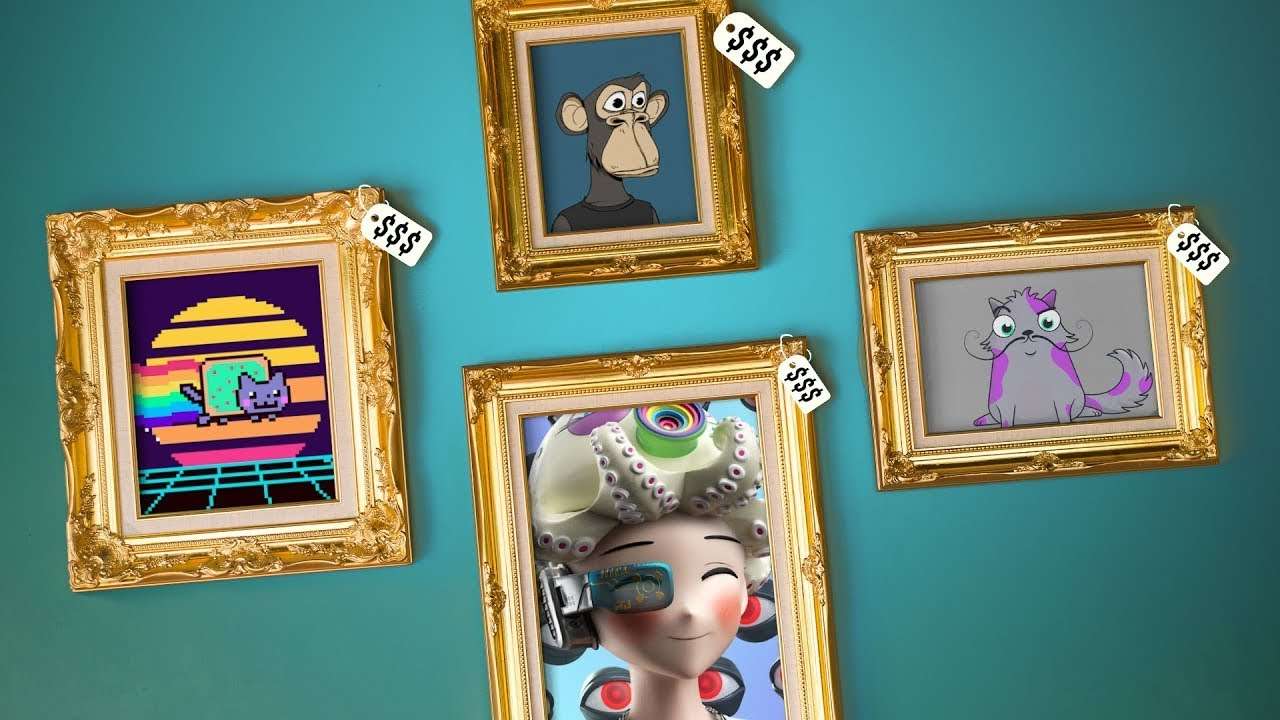What are NFTs?
A non-fungible token (NFT) is, in essence, a digital asset stored on the blockchain. An NFT could reflect videos, audio files or artwork. Each NFT token is unique, which is why owning these 1 of a kind assets linked to popular media is an exciting prospect.
NFTs are generally bought with the cryptocurrency, Ethereum. Your crypto wallet will help you to a, have the funds to initially buy the NFT, and b, have a place to actually store your NFT when it is purchased.
NFTs are now available to use as Profile Pictures (PFP) on sites like Twitter, so we have seen a surge in popularity with some of the biggest sports and media stars in the world investing in the NFT marketplace.
Permission to come a bored? @BoredApeYC #NewProfilePic pic.twitter.com/1pbBt2gB1V
— Jimmy Fallon (@jimmyfallon) November 12, 2021
The History of NFTs
Although it seems that NFTs are a recent creation, the first official NFT was actually created in 2014. A pixelated octagon, Quantum, created by Kevin McCoy, would later go on to sell for over $1.4 million.
Following this creation, there was a period of learning and experimentation that has eventually led to the NFT marketplace that we see today.
Where to Buy NFTs
The largest (and most popular) NFT marketplace is a site called OpenSea, although there are many others available, including many cryptocurrency exchange sites.
OpenSea has popular collections like Bored Ape Yacht Club (BAYC), CryptoPunks and Azuki. Access to trending projects will help new investors to identify opportunities, and it will also ensure that you are able to find artwork and projects that you can enjoy.
Where to Find New NFT Projects
Because of their surge in popularity, particularly for artwork, NFTs are a real trending topic. You’ll often be able to find new NFT projects on social media sites like Twitter and Reddit.
The OpenSea twitter will often share new launches and projects, but the Twitter NFT community is extremely active, so it likely won’t take you too long to find a project that really appeals to you.
???? PRESALE IS LIVE!!!????
— Tasty Bones ☠️ (@TastyBonesNFT) February 13, 2022
It's time to start your quest as tasty bones! ☠️☠️☠️
Presale link:https://t.co/XF5q41BQel
If you're a qualified #approvingbone holder: https://t.co/4Wx9j1W4BR
If you're eligible for a free mint: https://t.co/1wpTidOJ73 pic.twitter.com/SZyKWTQS7b
Are NFTs a Good Investment?
We have certainly seen huge growth in the market. For new investors, the difficulty will be identifying which projects are good investments (and which aren’t).
There are proven successes such as the YugaLabs BAYC projects, but also some that haven’t done so well. Liverpool FC recently minted over 171,000 NFTs but upon launch could only manage to sell around 5% of the entire collection (although they did still make over $1m.)
It’s thought that for most people, the widespread creation has come a bit too early, and the public generally is not so willing to invest in the unknown. But, for the early adopters – there is plenty of opportunity for collection and profit!








